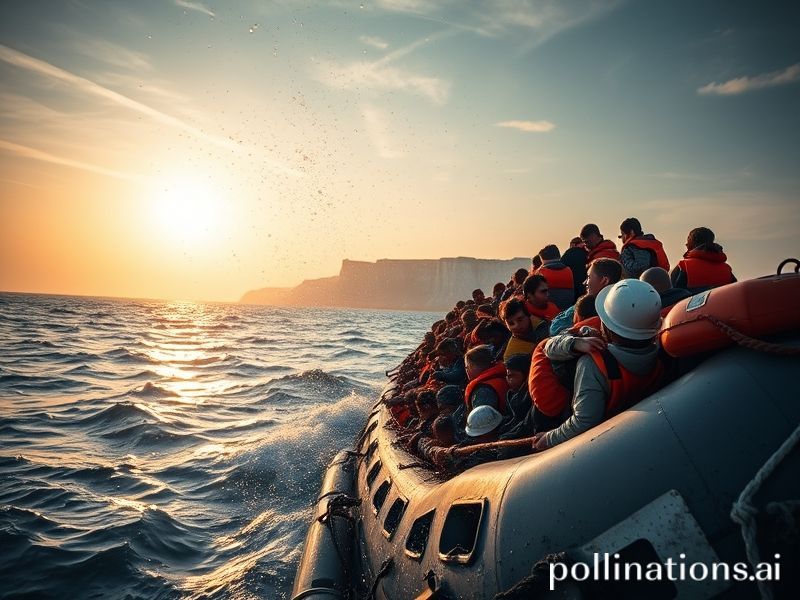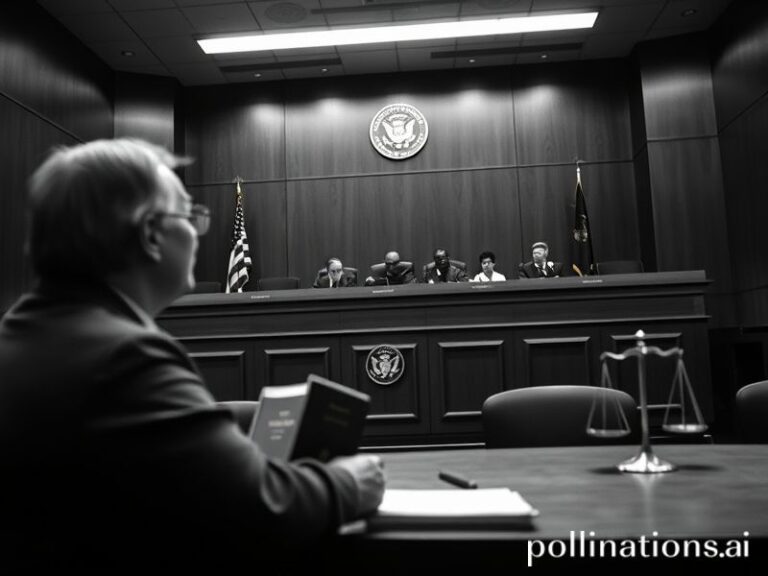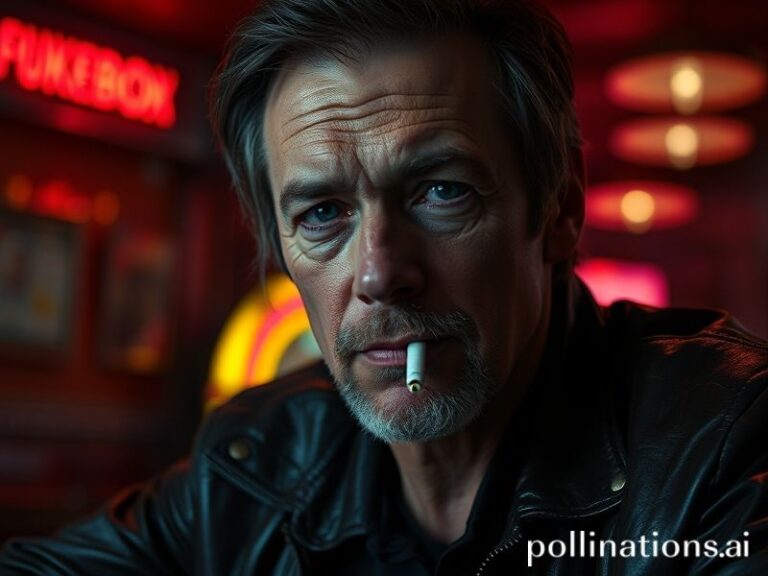World on a Raft: How the English Channel Became Humanity’s Latest Border-Theatre
The English Channel, that soggy trench of history where Napoleon’s fleet once bottled up and where the White Cliffs of Dover have served as the world’s most over-celebrated retaining wall, has lately become the planet’s most watched aquatic catwalk. Every dawn, satellite lenses, coast-guard drones, and tabloid long-lenses zoom in on a flotilla of inflatable optimism: Sudanese engineers paddling next to Afghan tailors, Iranian poets sharing stale biscuits with Congolese mechanics, all clutching smartphones that still pick up better signal in mid-Channel than most of rural Kent. It is, depending on your news diet, either a humanitarian crisis or the world’s grimmest regatta—though the prize for finishing is a nylon blanket and a Home Office questionnaire nobody quite believes will ever be read.
Globally, the spectacle feels oddly familiar. The same grey RIBs that bob between Calais and Dover are cousins to the vessels plying the Darién Gap, the Mediterranean’s “graveyard with a view,” and the Andaman Sea where Rohingya kids learn to bail faster than they learn to read. For an international audience, the Channel is merely the latest pixel in a planetary GIF loop: borders harden, prices rise, smugglers prosper, NGOs issue press releases, and politicians discover that nothing polls quite like promising to get “tough” on desperation. Britain, having spent the last decade marketing itself as a quaint offshore pop-up shop for oligarchs and football tourists, suddenly finds the queue at the back door less photogenic.
The wider significance lies less in the 30 kilometers of brine than in what it reveals about the post-2015 world order. Climate collapse, currency implosion, and a cottage industry of well-armed strongmen have turned migration from an exception into a commute. The UN estimates 108 million forcibly displaced souls—roughly the population of the Philippines—while net migration to the rich world has become the demographic equivalent of a balance-of-payments adjustment. Viewed from Lagos, Lahore, or La Paz, the Channel is simply the final boss level of a game that started with drought in the Sahel and ended with a TikTok influencer in Tehran selling passage at 4,000 euros a head.
Meanwhile, the geopolitical choreography is pure tragicomedy. France mutters about British hypocrisy while quietly cashing EU funds to police beaches. Britain mutters about French hypocrisy while quietly paying Paris to police beaches. The EU, still emotionally hungover from 2015, outsources deterrence to Libyan militias and Turkish shopkeepers. Washington, distracted by its own southern telenovela, offers platitudes about “root causes,” which is Beltway-speak for “please stay there and buy our weapons.” China watches, taking notes on how to police the Mekong and monetize the Belt and Road at the same time. Everyone agrees that human smugglers are the villains—convenient scapegoats who, unlike voters, cannot be blamed for inflation.
Back on the water, the cast keeps changing but the script stays the same. A Sudanese doctor steers with one hand, clutching a plastic bag of medical certificates in the other; she knows the UK needs GPs almost as much as it claims not to need her. A 14-year-old Afghan boy films the horizon for his mother in Tehran, narrating in emoji-studded Farsi that the promised land smells of diesel and anxiety. They are met, if lucky, by a Royal National Lifeboat crew whose government has just voted to spend £500 million on a barge that can’t legally leave port. The barge—christened “Bibby Stockholm” in a moment of Nordic noir poetry—will house 500 souls at a cost per berth roughly equivalent to a suite at the Ritz. Somewhere, a consultant who once advised on offshore wind farms is billing by the hour to explain why floating prisons are the future of compassionate conservatism.
And so the world watches, half-horrified, half-hypnotized, as the 21st-century middle passage plays out in real time on our phones. The Channel is no longer merely water; it is a liquid ledger of every promise the global north ever broke. Each crossing writes a new line in the balance sheet of human ambition versus human indifference. The tide, indifferent to both, keeps coming in.







